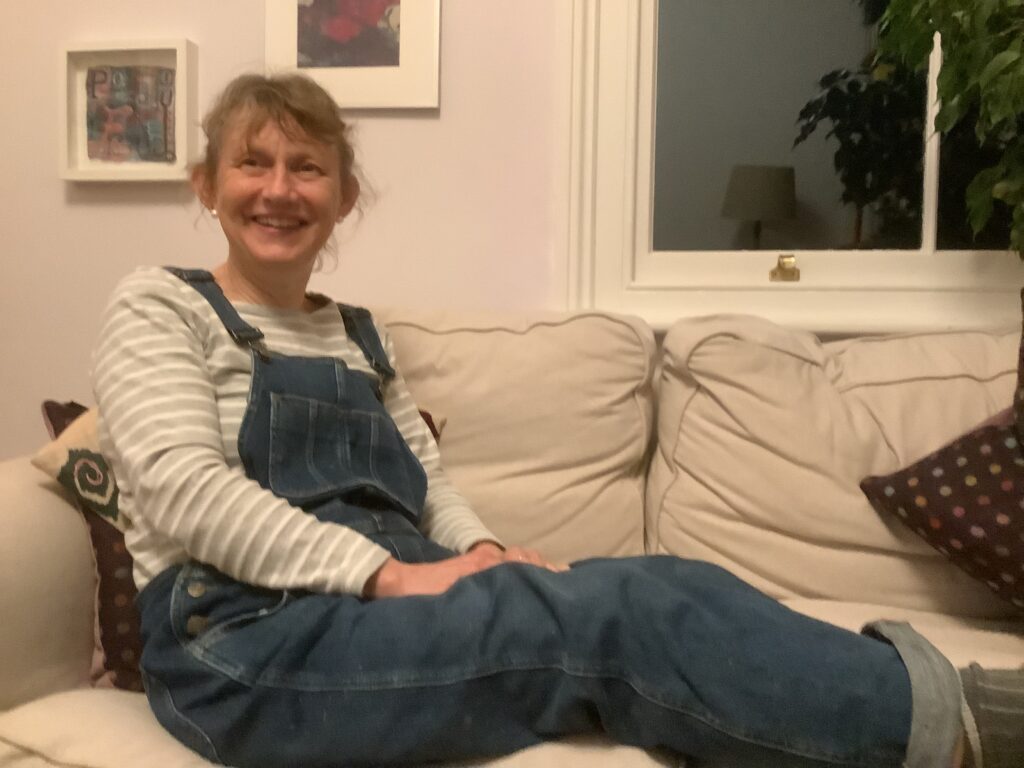
‘We do the best we can with the resources we have available at the time.’
This is an idea that a friend who is an NLP (Neuro-linguistic Programming) coach shared with me several years ago and to which I often return.
Remember in my last post the Cub Scout Law? It starts ‘Cub Scouts always do their best…’ All right, let’s be honest. Can you always ‘do your best’? Can you always be that much-lauded creature ‘the best version of yourself’? In my case, it’s a resounding ‘no’. For the past three weeks, I’ve been suffering from shingles – hence the delay in the blog posting. It interfered with my sleep, my work, my exercise, my social life and my all round well-being. Over the years, I’ve suffered period pain, migraines, flu and more recently, the dreaded Covid 19. And that’s just feeling unwell! We all have times when we’re over-tired, stressed, anxious, sad or generally below par. It is neither realistic nor reasonable to expect ourselves to ‘always do our best’; it is far more humane to accept that we can do the best we can with the resources that we have available at the time. Our responsibility is not, I would contend, in demanding ‘the best’ of ourselves, whatever our immediate circumstances – it is in aiming to ensure that we resource ourselves well for whatever we need and want to do. I have worked with many a teenage Gold Star addict who will sacrifice sleep for revision, in a misguided attempt to do his or her ‘best’. I did it myself in the past so I know the temptation. These days it can still be a struggle to prioritise sleep over the many, many demands of life, but I am learning to change my script to one that supports my well-being, rather than slowly kills off my brain cells!

I would love, therefore, to change the Cub Scout law to something kinder. In fact, I wouldn’t call it a law at all. Maybe it could be a recommendation? Or guidance? Or even just a suggestion? And the suggestion could be:
‘Cub Scouts aim to do the best they can with the resources they have available at the time.’
How does that sit with you? How do you find yourself reacting to the idea of a law being turned into a suggestion? We’re not talking about the law of the land here (though some of that, I personally find problematic), we’re talking about the internalised ‘laws’ that bind us. How do you feel about turning your own ‘laws’ into guidance or suggestions? If you find yourself jibbing at this – arguing that this way of thinking isn’t ‘strong’ enough or fearing that you will run amok, ask yourself what’s behind that reaction.
Self-Compassion
If we return to the principles of ACT (Acceptance and Commitment Therapy) and aim to live lives according to values, rather than goals, the value here is self-compassion. If we view ourselves with compassion, we will forgive ourselves when we aren’t our best version and look after ourselves with tenderness when we are hurting and disappointed, rather than adding to our pain by beating ourselves up.
There is, of course, more to ACT than committing to our values. In the previous chapter, I encouraged you to tolerate the discomfort of not seeking validation through your performances – to begin to sit with the discomfort you might experience. This is, inevitably, easier said than done. We find comfort in familiarity, including our habitual patterns of thought, however unhelpful they actually are.
A word of encouragement. We are quite used to the idea of tolerating discomfort when we need to make a change that helps us. Anyone who has consulted a physiotherapist or a personal trainer will know that sometimes we’re going to feel very uncomfortable whilst doing the prescribed exercises or new workout: we persevere because we know we will benefit in the long run, however tedious and difficult it is.

ACT provides us with some simple tools to help with accepting the discomfort whilst we change our habitual thoughts and if you want to know about these in depth, I suggest you follow up with some reading eg. The Little Act Workbook https://amzn.to/3yhOEiv or seek out Russ Harris on Youtube. Here, briefly, are some starting points:
1. Use Expansion.
Essentially, rather than resisting the thoughts that make you uncomfortable, you are accepting, allowing and making space for them – and then observing what happens to them.
Imagine pushing against a wall with one arm, really leaning into it and trying to push the wall away. It won’t go anywhere, but your arm will begin to hurt. This is like you trying to resist thoughts such as ‘I must do my absolute best or I am wasting my potential.’
Now imagine yourself resting your hand against the wall, arm outstretched, but not pushing, simply staying relaxed. You might feel some mild discomfort but you won’t hurt like you did when you pushed. This is you accepting the ‘absolute best’ thought. It’s still there, but you are simply observing it, not engaging with it, just allowing it to be as it is – a thought and only a thought. Once you aren’t resisting it, fighting with it or engaging with it in any way, you are free to walk away and leave the thought alone.
2. You can use Defusion techniques.
Again, if you’re interested, you’ll find plenty online about ACT and defusion. Essentially, you are distancing yourself from your own unhelpful thoughts by reframing them in a way that makes them very separate from yourself. You can repeat them in cartoon character voices, sing them to well-known tunes, project them onto an imaginary screen with you in the role of observer – it’s a case of finding what works best for you.
There’s a huge element of Mindfulness theory here. You are establishing the idea that you are separate from your thoughts and therefore, that thoughts that trouble you, can be disrupted and managed in ways that don’t harm you.
I like Russ Harris’s Sushi Train metaphor to summarise this concept. Here it is:
For some of you, the concept of a ‘soul’ might help. If you are happy with the idea that you are something more than a product of your brain, then it’s relatively easy to accept that you can start observing your thoughts, your feelings, your assumptions and rules, and see them as something separate from yourself. For those who don’t find the idea of a ‘soul’ useful, it can be helpful to remember that the brain has different ‘sections’: perhaps you can visualise one ‘section’ of your brain, observing other ‘sections’ of your brain producing memories and thoughts and the rules and assumptions that have become embedded. Personally, I also find it helpful to remember the times when, in the middle of a dream, I realise that I am dreaming. Who is the person who suddenly realises? I am simultaneously the dreamer and the person observing the dream.
However you choose to get your head round this concept, the aim is the same – to observe your thoughts, your feelings, your rules and assumptions, without being enmeshed in them and tortured by them.
This is difficult territory and these are only a few ideas for finding ways to manage our discomfort when the familiarity of our toxic thinking is so comfortable that it keeps drawing us back in. I’d love to hear from anyone who has anything more to contribute on this.
One last thing, whilst we’re on the topic of entrenched thinking and the power of thought. I said that for three weeks I’ve had shingles. Actually, three weeks ago, I was diagnosed in A&E with a kidney stone. I had no rash, had acute pain ‘from the loin to the groin’ and my blood pressure was scarily high. I was prescribed some hefty painkillers, had to drink at least 3 litres a day and was told to get my GP to book me a CT scan. Six days later, after some time outside in the sun, I found what I assumed was a cluster of midge bites ‘from the loin to the groin’. ‘Oh bum,’ I thought. ‘Now I have a kidney stone and load of very painful midge bites – I’ve never had them this painful and itchy ever before!’ It took a clear CT scan, a fraught conversation with a doctor who told me that I should, ‘Calm down and takes some laxatives!’ and some furious Googling before I worked out what was actually wrong with me and confirmed it with a less patronising doctor. I’d been told I had a kidney stone and I believed it. I then made my experience fit the diagnosis – until it couldn’t any longer. I’d had an assumption implanted that I had acted upon – although it was completely erroneous.
It’s a good lesson. We act on the rules and assumptions that have been implanted – and it can be very difficult to then think outside the box. I hope this blog is helping you to do that!
Please note this post contains an affiliate link.




I have always understood “doing my best” not as being the best I can be when all is well, but the best I can do with the conditions of my mind, body, health, place etc. However, I tend to suffer from guilt, that shows I haven’t necessarily acted on that understanding. When I really do, I realise I have forgiven myself.
Really sorry to hear about the shingles. Hope you’re recovering now! Vx